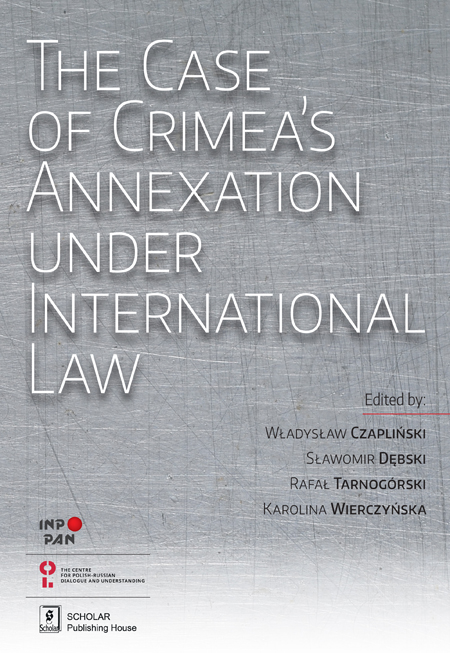The Case of Crimea's Annexation under International Law

Nowadays, when we refer to Russian actions against Ukraine we can separate the responsibility of a state and the responsibility of individuals, but even though we are able to divide these questions quite distinctly, the question arises about effective application of present-day regulations of international law to this particular inter-state conflict. The majority of UN member states supported Ukraine’s independence, numerous actors – including the US, the EU, Canada, Japan and Australia – imposed sanctions against Russia as a means of disapproval of blatant violation of international law and in response to Russian threat to the sovereignty and territorial integrity of Ukraine.
Crimea`s annexation has caused serious concern in Central and Eastern Europe. The Russian position toward international law and territorial integrity of its neighbors has become an urgent political, legal and research problem. Dr Sławomir Dębski, then director of the Centre for Polish-Russian Dialogue and Understanding and professor Władysław Czapliński, then director of the Institute of Law Studies of the Polish Academy of Sciences concluded that a large international conference should be organized to look at those problems through the prism of international law. On the anniversary of the annexation of Crimea, the conference took place in Warsaw and brought together renowned international lawyers. This book is the result of ongoing fruitful cooperation between two institutions to assess legal complexities of what happened in Ukraine as well as possible legal responses.
Download: The Case of Crimea's Annexation under International Law - contents.pdf